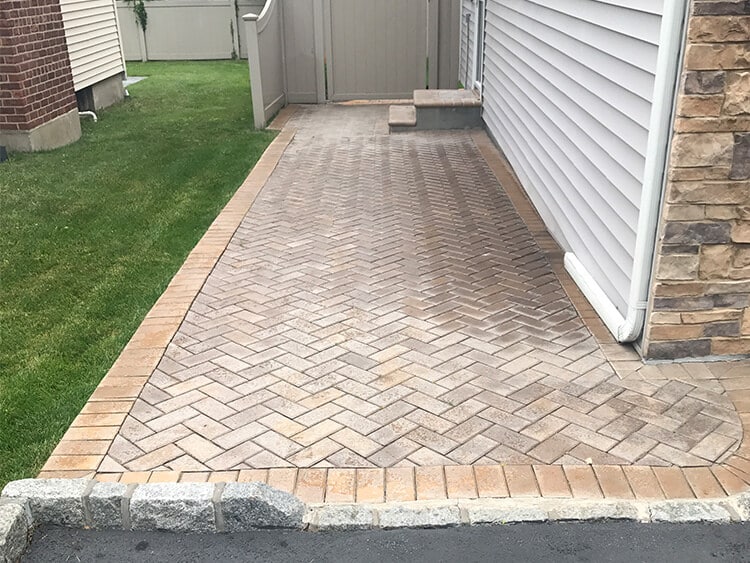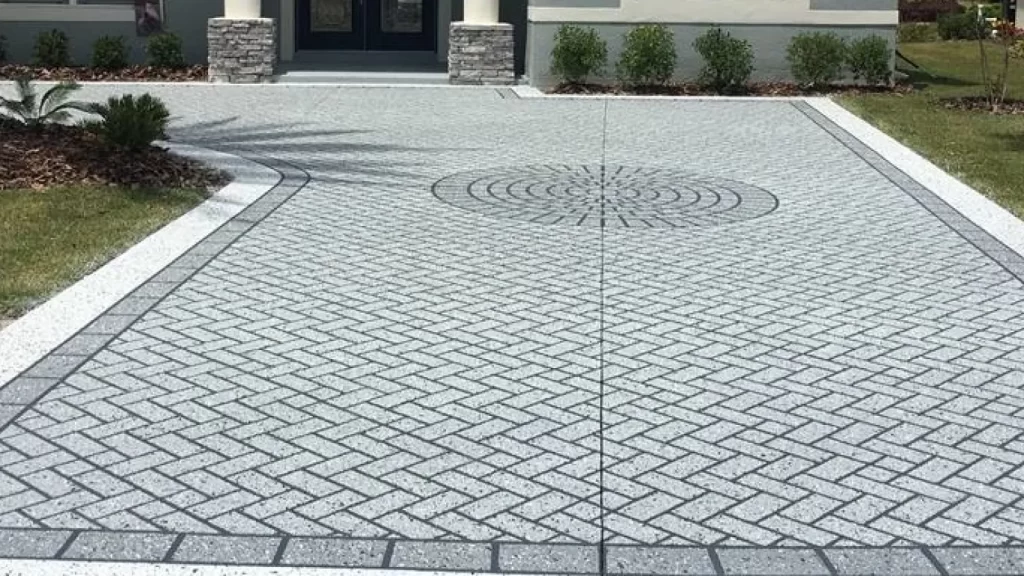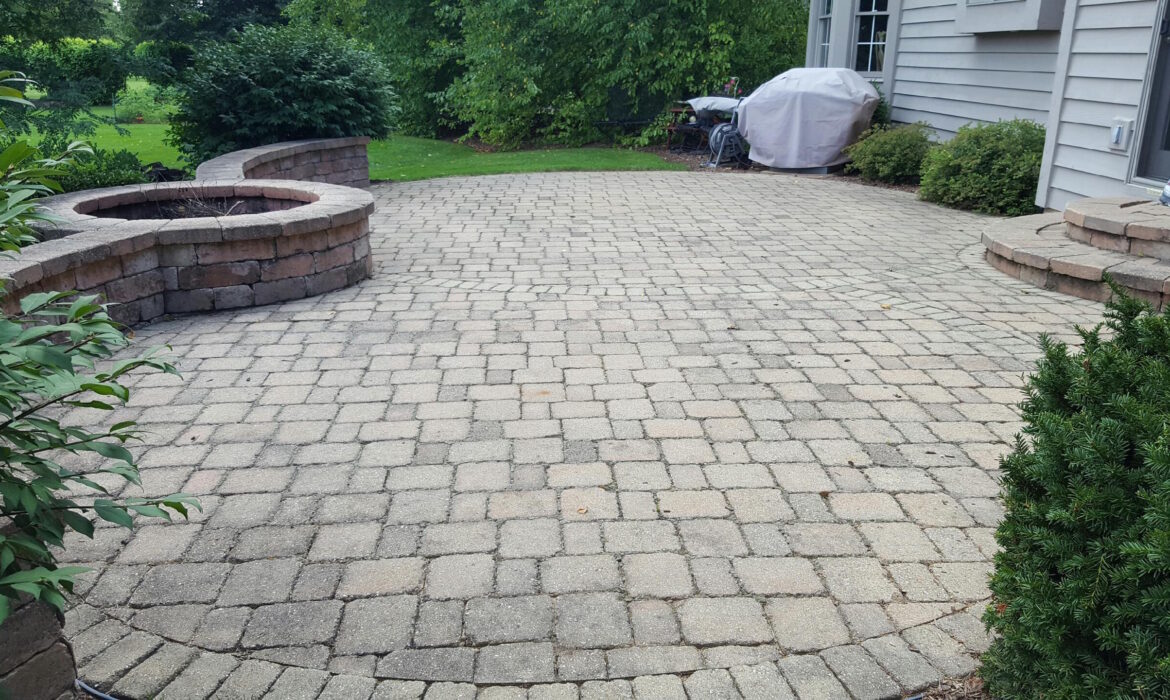Driveway pavers create aesthetic appeal and functionality to your home’s frontage. Many homeowners have pavers sealed on their driveways to maintain their attractiveness. Sealing could seem innocuous, but there are some consequences.
The Pros of Sealing Driveway Pavers
It is worth mentioning there are some benefits to sealing your driveway pavers. Sealing your pavers helps to prevent stains and spills, making them easier to wash and keep clean. Sealing, too, leads to the pavers being more bright and fully polished.

Seeds are unable to germinate due to the impenetrable seal between pavers. It will take you less time and less work to weed your driveway. Sealing pavers eliminate erosion by rain and snow.
Sealing driveway pavers can also help safeguard their perfect appearance for years to come.
The Cons of Sealing Driveway Pavers: Environmental Impact
However, there is one negative side to sealing driveway pavers, and that is the environmental impact. There is a problem with the sealant chemicals, which cause harm to the ecosystem when they get to the groundwater or streams. It may hurt sensitive ecosystems and aquatic life.
Some sealants let VOCs (volatile organic compounds) go into the air during application and drying, contaminating the air. These pollutants can have detrimental effects on humans and the environment.
Sealant manufacturing consumes a lot of energy, which releases carbon. This way, you allow your driveway pavers to be carbon-neutral and have a minimal impact on climate change.
The environmental impact of sealing the driveway pavers is something that every time you think about, you will make a wise decision for your property and the earth.
The Cons of Sealing Driveway Pavers: Potential Damage to Pavers
Sealing the surface of your pavers might seem like a good option, but it can damage them. Sealing can cause water to be trapped between pavers, which will eventually destroy and shift them. The excess moisture stored on the driveway can also lead to mold and mildew, further deteriorating the surface.
Sealing pavers means they cannot breathe or release pressure underneath them. Efflorescence, a white, chalky substance created from trapped salts and minerals, will likely become more prevalent.
If sealants are not applied and maintained correctly, the pavers’ color may change. It might have been a surprise that the driveway color changed after you sealed it.
Sealing your driveway pavers means considering the consequences and weighing up the benefits.
The Cons of Sealing Driveway Pavers: Maintenance and Cost
Preserving the pavers is a major drawback of sealing them. Sealing can preserve your pavers and enhance their beauty, but you have to invest in it for the long term.
Every few years, resealing, eliminating stains, and repairing damage can require money and be a waste of time. Also, if the pavers are poorly maintained or aggressively cleaned using harsh chemicals, they can also be damaged.

Sealing driveway pavers is an additional cost concern. Apart from the initial cost of sealing products and techniques, the sealed surface also includes operating costs. Hiring maintenance personnel is a labor-intensive task.
These maintenance needs and costs must be balanced against the benefits of sealing to make a choice that will provide a solution compatible with your pavers’ lifespan and beauty goals.
Alternatives to Sealing Driveway Pavers
It can be done in several ways to prevent sealing for driveway pavers. Polymeric sand between the pavers will add more strength and prevent weeds from growing. Due to this, it can sometimes be an alternative with no environmental impacts or damages.
Keeping up with your driveway by cleaning it regularly will help you avoid clutter and obstacles. Regular sweeping, hand weeding, and power cleaning are the ways to keep the appeal of your paver intact. Installing a paver-specific non-sealing protective layer can be another option to prevent the staining of the paver and facilitate the drainage of the rainwater.
The options could be your best guide for choosing the proper driveway paver care procedure and avoiding the risks associated with the standard sealing process.
Conclusion: Weighing the Pros and Cons
The advantages and disadvantages of sealing driveway pavers have been carefully weighed, and the improved appearance and protection come right to the fore. Nonetheless, the potential environmental effects, paving damage, maintenance costs, and expenses should be considered.
The following tips are for you to consider when sealing your driveway pavers. Cleaning and joint stabilization are the steps to save the pavers without sealing. The pick should suit your style, durability, affordability, and environment-related considerations.
In addition to this, keep in mind that every driveway is used and exposed to different conditions. Professionals can address issues specifically in your case. Think through all the criteria listed above to make a good decision to let your driveway stay functional and nice-looking for many years.

